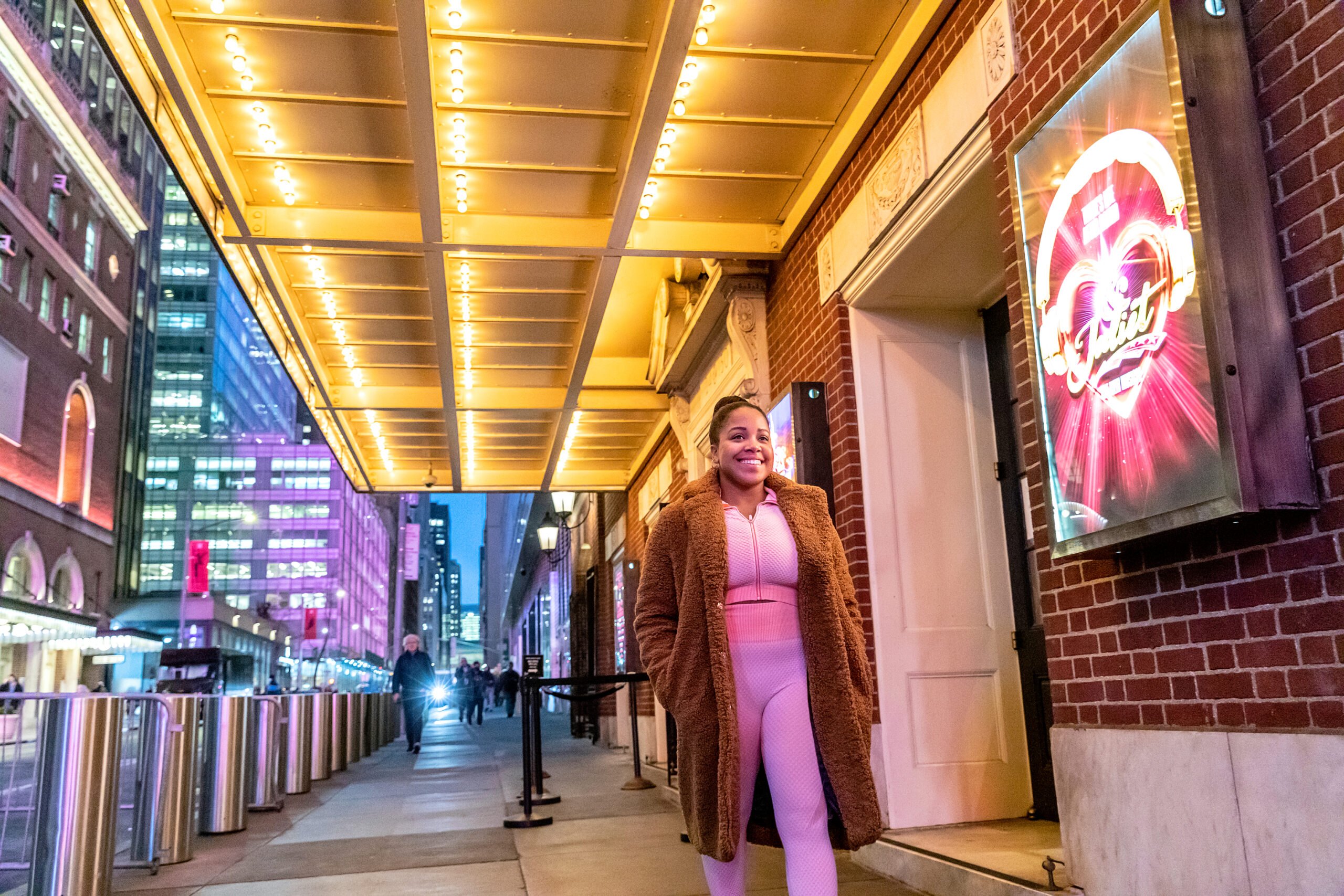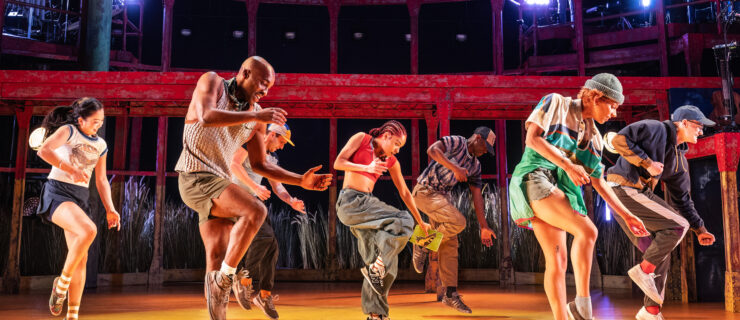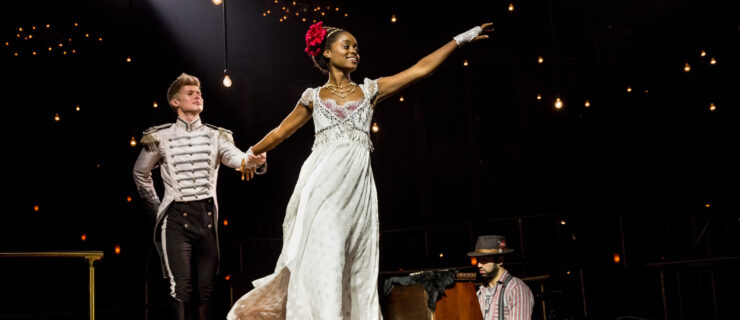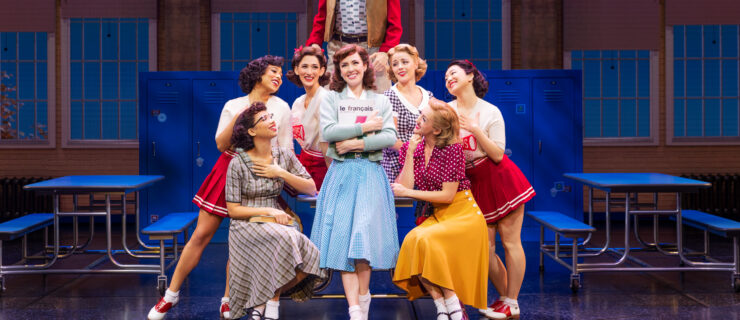Behind the Scenes with Brittany Nicholas, Dance Captain and Swing in Broadway’s & Juliet
Brittany Nicholas’ onstage and offstage roles blend together in the informal opening of Broadway’s & Juliet. With the house lights still up, ensemble members saunter onstage with mugs and water bottles in hand, breaking the fourth wall by warming up in front of the expectant audience. When it’s Nicholas’ turn to enter, she does so holding a patterned binder, her authoritative role clear as she gives notes to her peers. But as the show gets underway, Nicholas blends into the group, dancing Jennifer Weber’s dynamic choreography while singing refrains by songwriting sensation Max Martin, whose earworms you know from the likes of Britney Spears, Backstreet Boys, Katy Perry and so many more.
Much like the concept of Martin and David West Read’s madcap show, which pairs pop hits with an imagined future for Shakespeare’s Juliet, Nicholas’ role is a mash-up: She’s a swing, the show’s dance captain and an understudy. As dance captain, she’s responsible for knowing the 12 ensemble tracks and all of the dancing for eight principals. She also acts as an extension of the choreographic team, maintaining the choreography and integrity of the show, taking notes, leading rehearsals and a daily warm-up, and teaching new cast members their parts.
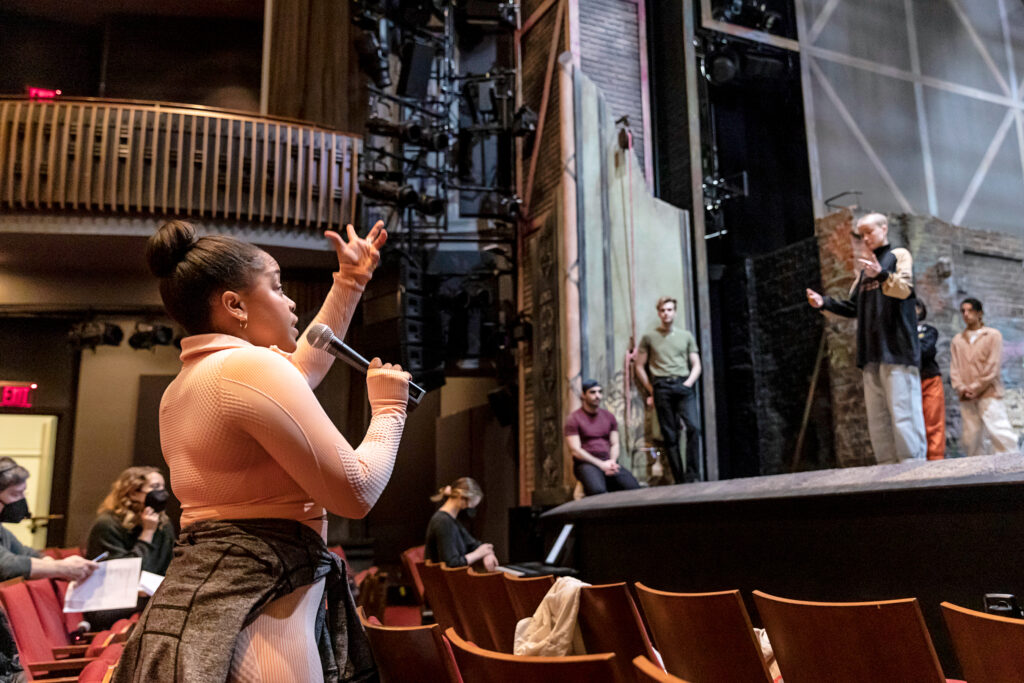
Like many of musical theater’s unsung heroes, Nicholas, 33, has built a career around her ability to hold the intricacies of an entire show in her head. Nicholas credits this skill set with growing up on a competition team at the Academy of Dance and Gymnastics in Newport News, Virginia. “From age 10, I would be in seven routines total, and I’d learn them all in one week,” she says. At the urging of a competition judge, Nicholas started auditioning for musical theater in New York City during her senior year of high school. “I went in for a little show called Billy Elliot,” jokes Nicholas. “I didn’t know what a swing was at all, but they clearly saw something in me.” Nicholas was also the dance captain of Billy Elliot’s Toronto production. “That credit has now opened the door for all these other swing and dance captain contracts,” she says, highlights of which include the Broadway run of Mean Girls and the national tour of Matilda.
Nicholas’ experience was recognized during & Juliet’s opening night last November. As the ensemble member with the most Broadway credits, she was awarded the Legacy Robe, a decades-long Actors’ Equity tradition. “I’ve been able to check off so many bucket-list things here,” Nicholas says of her time in & Juliet.
Earlier this year Dance Magazine went backstage with Nicholas, following her from rehearsal to warm-up to backstage preparation as she juggled the roles of swing, dance captain and understudy.
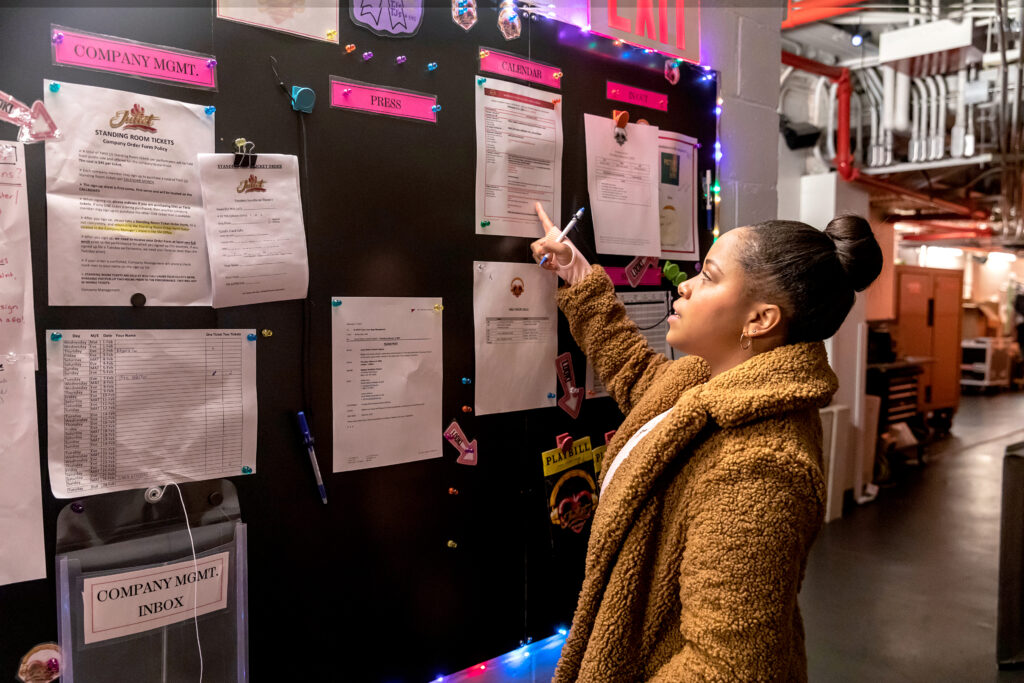
A Childhood Dream
“When I was 10 years old, Britney Spears’ first album came out, and I wanted to be a backup dancer for her. Max Martin wrote so much of her music, so this musical is full circle for me. Obviously I’m not a pop star—that never happened for me—but I can pretend to be one here, and sing all my favorite songs. Meeting and working with Max is an amazing thing.”
Managing the Details
“Being a dance captain is unique because you are an extension of the creative team, and you’re also on the ground with the company. I work closely with the choreographer, Jen, and her associate, Esosa. Day-to-day I am responsible for our voluntary warm-up and also spacing onstage if an understudy is going on last minute. I help run rehearsals, and I help teach new tracks. I work with the stage managers, as well, staying up to date with the spike marks and what’s happening with the crew. On some really crazy days when we don’t have enough people, we do split-tracking, where one person might be doing more than one track at a time. I come up with the puzzle pieces of how the show will run smoothly—without the audience knowing we don’t have enough people.”
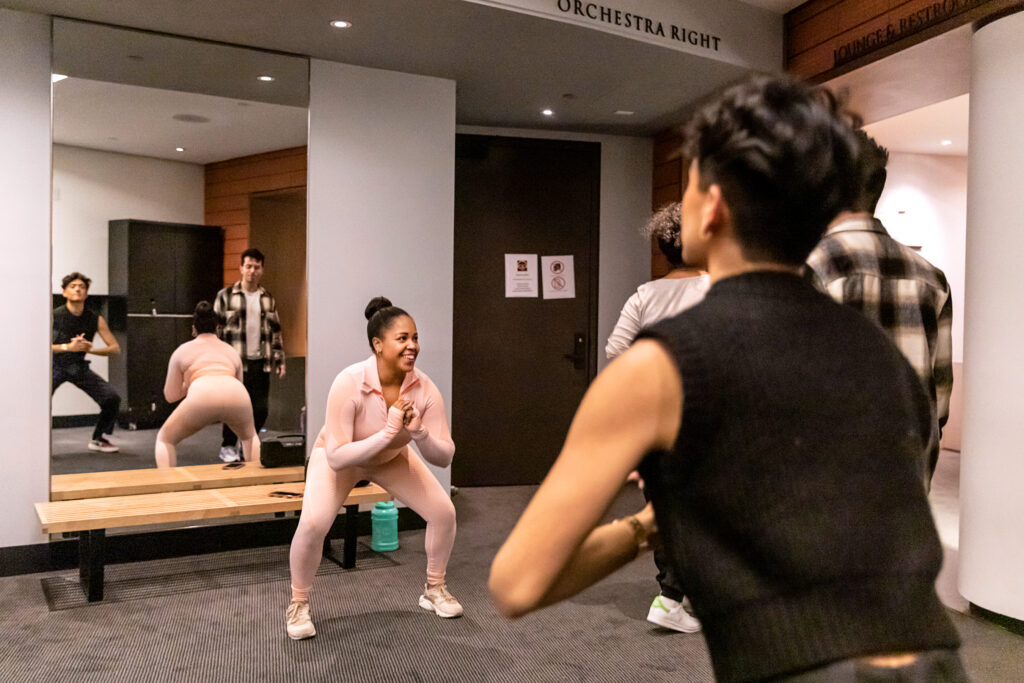
Getting to Work
“If we have rehearsal at 12:30 or a 1:00 call time, I try to be up by 9:30. I put my coffee on and then get in the shower and start vocally warming up. I have a gym in my building, but if I can’t make it down there, I always try to do some Pilates or yoga, just something to get my body going. I live in Harrison, New Jersey, so I take the PATH train and transfer to the subway at World Trade Center. I like the commute, because the show is very full-throttle. I’ll listen to my favorite jams, and get myself ready for the day.”
Before Showtime
“We get an hour and a half between rehearsal and the show, and I try to eat dinner right away so I can digest. When I show up to the theater, I like to have a bit of downtime, then I normally run warm-up and then will pop around and give notes. Then if I’m on, at half-hour I get into hair and makeup. If I’m not on, I’ll still sit on standby and figure out if I need to take notes or hang out in the wings.”
Tidying Up
“Dance clean-up days are always exciting. We’ve been busy putting in our understudies, so we haven’t had a chance to go through each number and remind ourselves of the pictures in the choreography and our intention. It’s nice to get time to really clean things up.”
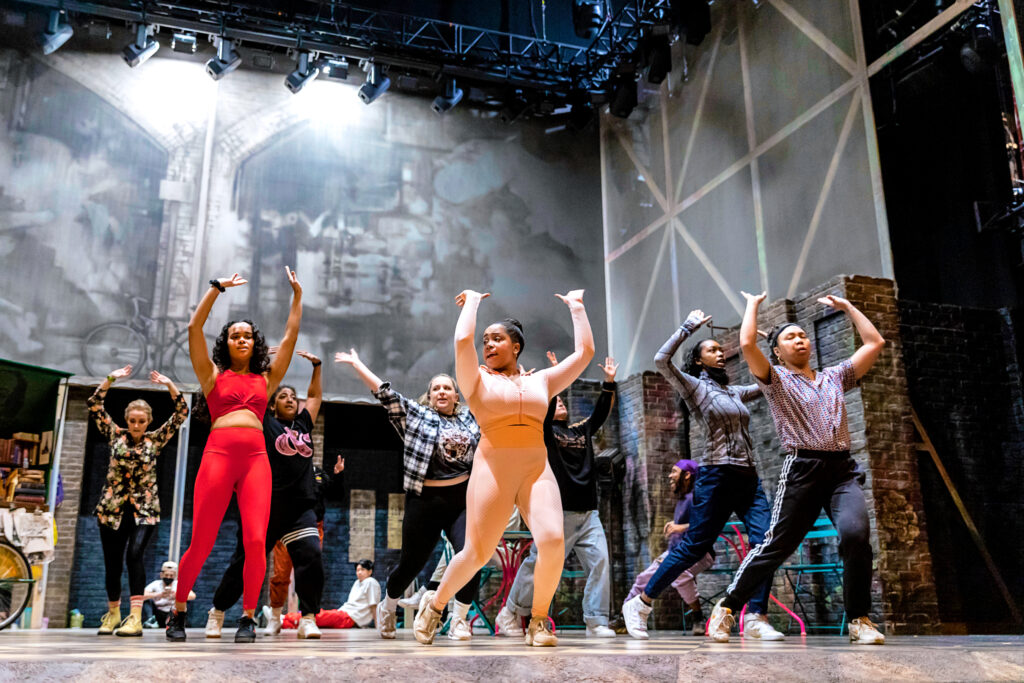
Celebrating Differences
“& Juliet is different because we have people who specialize in breaking and people who have sung pop and R&B all of their lives, and now we’re in this melting pot of a musical theater show. Everybody gets to express themselves how they want onstage; we’re all dressed based on our personalities. It’s the first show where I feel like we are all different for a reason, and it’s celebrated.”
Staying Focused
“I’ve been doing the show so long now that I can be completely involved in the track I’m doing, but also keep an eye out, just because as a swing, we have so many moving parts. A sign’s flying out, or someone’s coming past you with a chair, that you always have to be aware of your surroundings. But depending on the role I’m doing, when I do have scene work, I will focus more on my intentions and lines and connecting with my scene partner.”
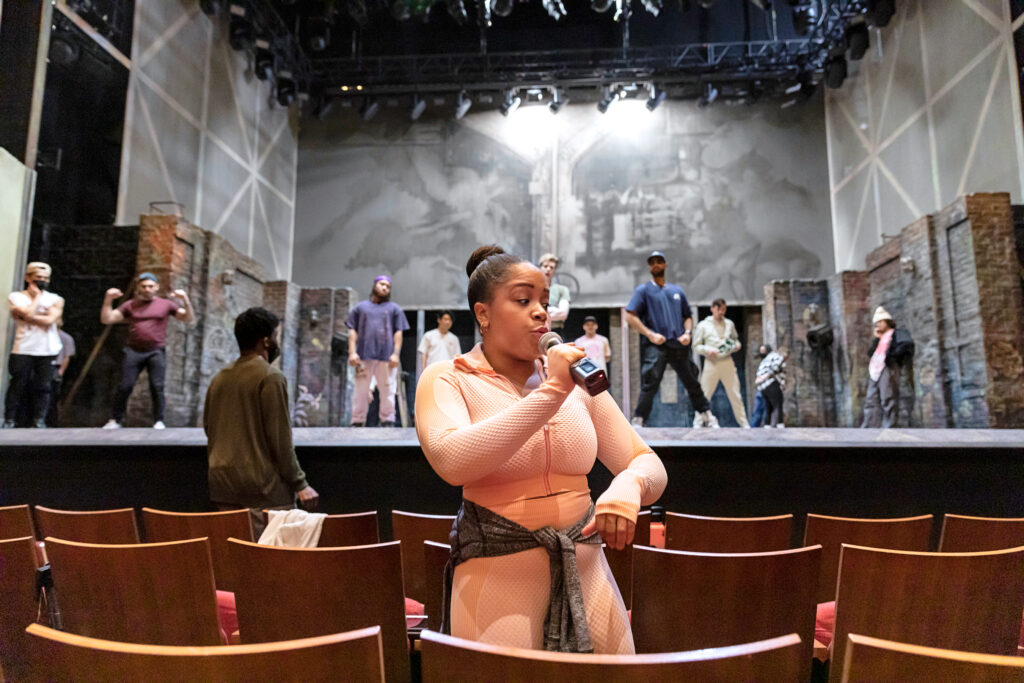
Life as a Swing
“Swinging is such a rewarding job because you’re really important. You have a pretty big job knowing the tracks and helping the show run and staying calm under pressure. The downfall is that you’re not in a track every night, so it’s hard for people to come and see you. You want to go on and blend in, which is the whole point. But when you’re not recognized for it, sometimes it’ll make you forget how special you are. Swings are now getting more recognition. I do love it, but I also know that I would love to be an onstage track, or move up and be an associate, meaning I would work even more closely with the choreographer.”
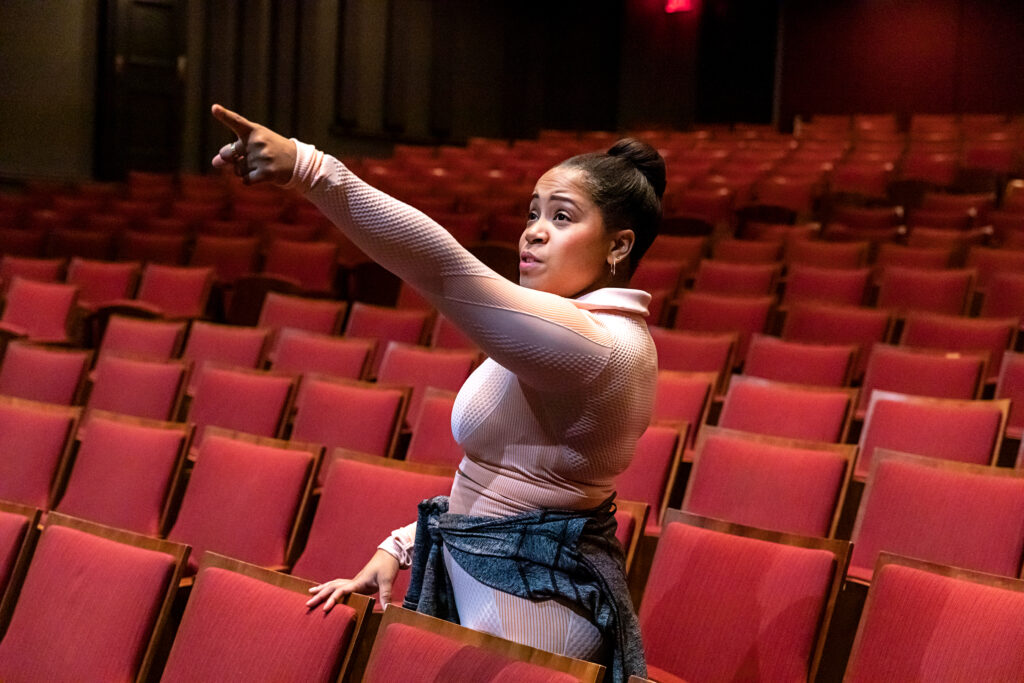
On the Right Track
“I take a lot of notes. The tech process was so fast, you would catch me in the wings writing down stuff frantically, because the more information I have, the better. Once I learn the show, I go track by track and have a notebook with a sheet for each track. Now that I know the show with my eyes closed, I can use process of elimination to figure out who’s around me. But it’s a lot of studying and quizzing myself. And knowing when I’m at capacity, and being like, ‘Okay, maybe don’t do anything extra tonight.’ ”
Going Onstage
“I actually go on a lot, just because doing eight shows a week is really hard. When one of the leads calls out, like Juliet or Anne [Hathaway, Shakespeare’s wife], one of the understudies in the ensemble is bumped up, so then as a swing I’ll go into that track. There are six swings total, and different variables depending on if people are sick or injured. It’s fun, because I feel like it’s always something new. It’s never the same show.”
